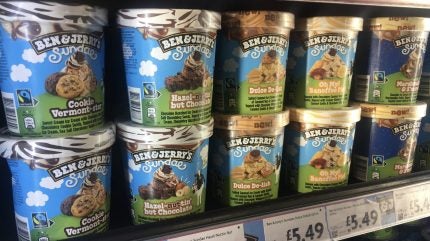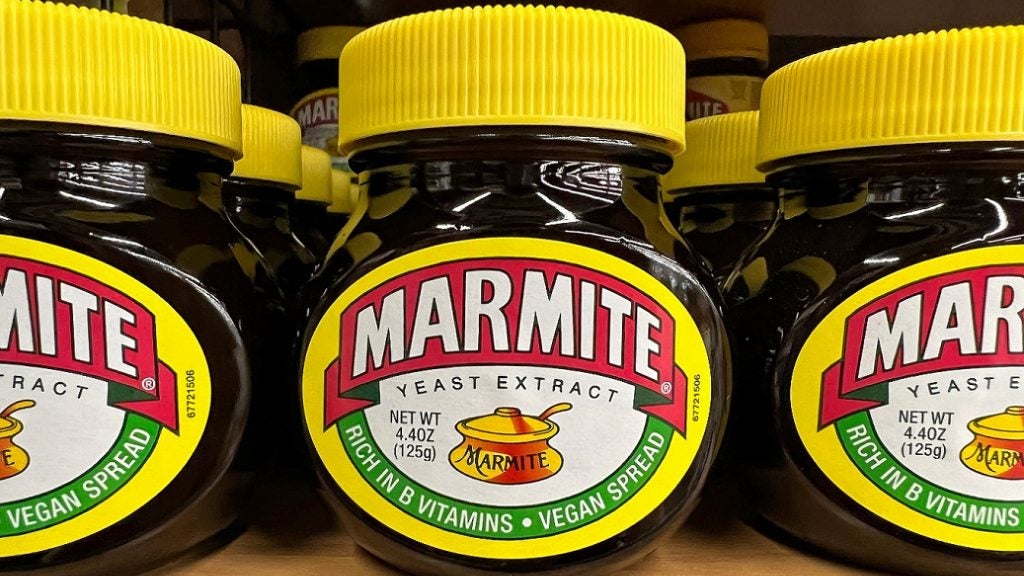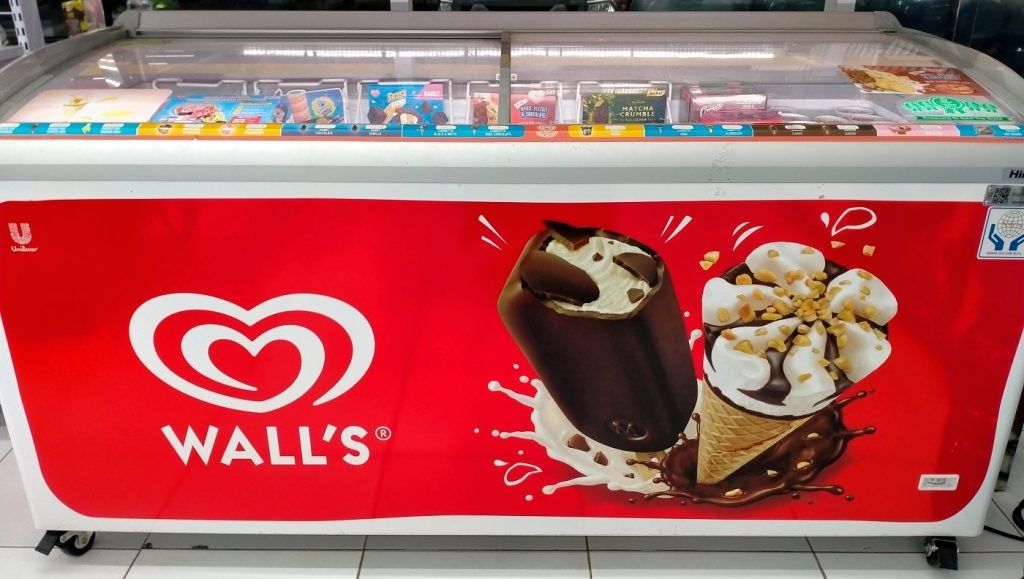
Bets are on over the future of Unilever’s remaining food business amid the FMCG giant’s plan to spin-off its smallest division of ice cream.
It was the first question to spring to mind when Unilever announced yesterday (19 March) its move to separate its ice cream business from the company, particularly given the long-running speculation of where food sits in the portfolio alongside beauty, personal care and household products like detergent and soap powder.

Discover B2B Marketing That Performs
Combine business intelligence and editorial excellence to reach engaged professionals across 36 leading media platforms.
More immediately, however, is the question of whether Unilever will list ice cream or sell it, and the underlying plans for the rest of its food assets. The company’s nutrition unit houses brands including Knorr soups, Hellmann’s mayonnaise and Colman’s mustard.
We may have to wait a while as it’s unlikely Hein Schumacher, less than a year in since he took over from Alan Jope as CEO, will make any further move in food as the “full separation” of ice cream is not expected to be completed until the end of 2025.
“A demerger of ice cream is the most likely separation route and, in that case, we expect the company to operate with a capital structure in line with comparable listed companies,” the Ben & Jerry’s and Magnum owner said.
“Other options for separation will be considered to maximise returns for shareholders. The costs and operational dis-synergies relating to the separation of ice cream will be determined by the precise transaction structure chosen.”

US Tariffs are shifting - will you react or anticipate?
Don’t let policy changes catch you off guard. Stay proactive with real-time data and expert analysis.
By GlobalDataCurrent shareholders in Unilever would be awarded new shares in the ice-cream entity – yet to be given a name – if the plan proceeds in the form suggested.
“It’s most likely a demerger because they could not find a buyer for the ice cream or nutrition asset, at an acceptably high price,” Bruno Monteyne, an analyst for European food and home and personal care at asset manager AllianceBernstein, wrote in a research note, telling Just Food the prospect of a buyer emerging before the listing is “still a bit open”.
Analysts at Barclays, led by Warren Ackerman, said ice cream had been “dilutive” on Unilever’s historical performance, suggesting the spin-off “is another step to shift its portfolio more towards HPC [home and personal care]”.
It is very clear that Unilever’s future is HPC
Barclays analysts
Ice cream delivered €7.9bn ($8.5bn) in turnover for Unilever last year, while the nutrition business accounted for €13.2bn. The other three remaining businesses post transaction – beauty and wellbeing; personal care; and home care – generated €12.5bn, €13.8bn and €12.2bn, respectively.
The Barclays’ team added: “Overall, this is firm action that the market has been looking for. It still has a big job to improve competitiveness but we think it is moving in the right direction. There will now be inevitable questions about the future of its nutrition division, which is also dilutive to growth (although not to margins). It is very clear that Unilever’s future is HPC.”
Food brand destiny
Karel Zoete, an analyst at financial services company Kepler Cheuvreux, tells Just Food the “direction of travel is clear” over the destiny of Unilever’s food assets, noting the “incremental capital is predominantly spent in the beauty and personal-care businesses”.
He adds: “That's the direction of travel we go anyhow. If you look back to the early part of the millennium, food was still 56% of the business, and today it's a third.”
Spreads was another casualty in the food portfolio during the tenure of Paul Polman, the predecessor to Jope, sold to investment firm KKR in 2017 for €6.8bn. Tea followed in 2022 with the disposal of Ekaterra to CVC Capital Partners for €4.5bn.

Prior to any potential sale of food, or a similar proposition to ice cream, Zoete suggests the nutrition business might be scaled down in terms of brands, with Unilever leaning more into other elements of the group portfolio.
“I think that within the existing foods business of Unilever, there remain parts that will be sold off.
“Marmite in the UK, for example, it's not a very scalable platform. Or, here in the Netherlands, we have the Indonesian food brand Conimex, which is not a very scalable platform either.
“You might call them local heroes, but they're not scalable platforms that you can grow globally and invest in R&D and plants, etc.”
Schumacher repeated his pledge yesterday, under the Growth Action Plan unveiled last October, to do “fewer things, better, with greater impact to drive consistent and stronger top-line growth, enhance productivity and simplicity, and step-up Unilever’s performance culture”.
Unilever’s ice-cream options
Should Unilever opt to sell the ice-cream component rather than go for a listing, it would more likely be as a group rather than on a brand-by-brand basis, Zoete says.
“My interpretation is that they will sell it [ice cream] as one business but, at this point, they seem to have a preference, or they think it's most feasible, that it will just be a spin-off,” he says.
“There are clearly loads of synergies to sell both Ben & Jerry's and Magnum and all the ice-cream brands to the same consumer to manufacture at the same sites.
“Within the overall ice-cream business, of course, there are some brand positions that are more mainstream and maybe you could see that the non-premium parts could be looked at differently. But I think Ben & Jerry's and Magnum, etc, are the premium parts of the portfolio and are probably the most interesting brands.”
I don't see a strategic buyer for ice cream. Unilever is larger than the other top five players combined
Karel Zoete, Kepler Cheuvreux
Zoete suggests private equity would be the most likely buyer if a sale process emerged but with a risk element because the “capital gains tax implications might be significant”.
He added: “I don't see a strategic buyer. Unilever is larger than the other top five players combined.”
Unilever said it will “continue to optimise its portfolio within the four business groups towards higher growth spaces and through brands with global reach or significant potential to scale”.
Prior to Schumacher’s appointment, his predecessor Jope had aborted a bid in 2022 to buy the consumer healthcare business of GlaxoSmithKline, an approach that had drawn much criticism from investors.
Speaking at a Barclays event in December, Schumacher said he wanted to “take complexity out of the portfolio” but was “keen to fill the gaps” on the premium side in terms of potential bolt-on acquisitions.
In October, he ruled out spinning off the nutrition division in food, as had Jope in the past, although the latter reorganised the Unilever set-up in 2022, including creating a separate unit for ice cream.
“Dis-synergies”
Alongside the ice-cream demerger, Unilever announced a “productivity programme” designed to save €800m in three years, “more than offsetting estimated operational dis-synergies from the separation of ice cream”.
However, the objective comes at a cost – about 7,500 mainly office roles, adding to the 1,500 or so job cuts when Jope announced his business reorganisation in 2022.
Analysts at investment bank Jefferies, led by David Hayes, estimate the dis-synergies could equate to around 2.5% of ice-cream sales, or about €200m, with a benefit to the group gross margin of circa €100m, or 15 basis points.
“We value the operation on a ten-year DCF [discounted cash flow] forecast model. We assign €11.5bn of enterprise value to a stand-alone ice-cream business. That could equate to a market cap of c€8.8bn. This assumes mid-term sales growth averages 2.5%, with a consistent operating margin of c11%,” the Jefferies analysts suggested.
Restructuring expenditure will also rise in the next three years to 1.2% of Unilever’s turnover - €59.6bn in 2023 – from 1%.
“Post-separation, Unilever aims to deliver mid-single digit underlying sales growth and modest margin improvement,” the company said, compared to the 3-5% previously communicated longer-term guidance.
Monteyne at AllianceBernstein says the ice-cream demerger is a “good move…as brand conglomerates don’t work”.
However, he adds: “Don’t get carried away by cost-cutting targets. No successful brand manufacturer was ever built on the back of cost-cutting, and it is what got Unilever and most of its peers in to trouble last decade.
“The company has tried accelerated cost-cutting for accelerated growth for at least a decade. As such, the plan for the rump business…is the same as it always was.
“We are still waiting for new management to identify historical mistakes and new solutions: without it, this plan remains ‘we will try harder’ to execute the same plan, or hope over experience.”
Margin benefits
Zoete says there are differences between Unilever’s ice-cream business and the nutrition unit, mainly around the supply and servicing dynamics, that perhaps go some way to explain the decision to spin-off the former.
“The distribution structure is clearly different than other parts of the business, whereas if you think about a food business or a laundry products business, they predominately sell to the same people. You don't need to separate the supply chain for mayonnaise and laundry detergent,” he said.
“You have a lot of out-of-home sales, and that's about half of the ice-cream business, 40% or so. For ice cream, you also need a cold supply chain and cabinets on the street, which require a significant investment in capital.”

Barclays suggested the exit from ice cream is also a positive in terms of Unilever’s wider gross margin. The analysts estimate ice cream delivered a margin ten percentage points below the group’s 42% in 2023.
“Our view continues to be that the longer-term gross margin ambition is to get to close to 50% and the announcement today is a big step forward,” they wrote.
“Unilever wants to get back to pre-Covid gross margins asap (44%), which we think is a realistic aim over the next eighteen months.”
Schumacher pledged in February – when Unilever issued its 2023 results – that he would seek to address the under-performance in ice cream, where the company’s brands had come under pressure from private label.
The CEO also shuffled and shook up the leadership team for the category unit last year, putting in place Peter ter Kulve to head it up.
“Under Peter ter Kulve’s leadership, ice cream could outperform the rump of the business very rapidly, providing potentially a new high-growth investment opportunity in our sector,” Monteyne wrote.
“Hope does spring eternal but we are inclined to allocate our daily dose of hope to the new ice-cream business.”



